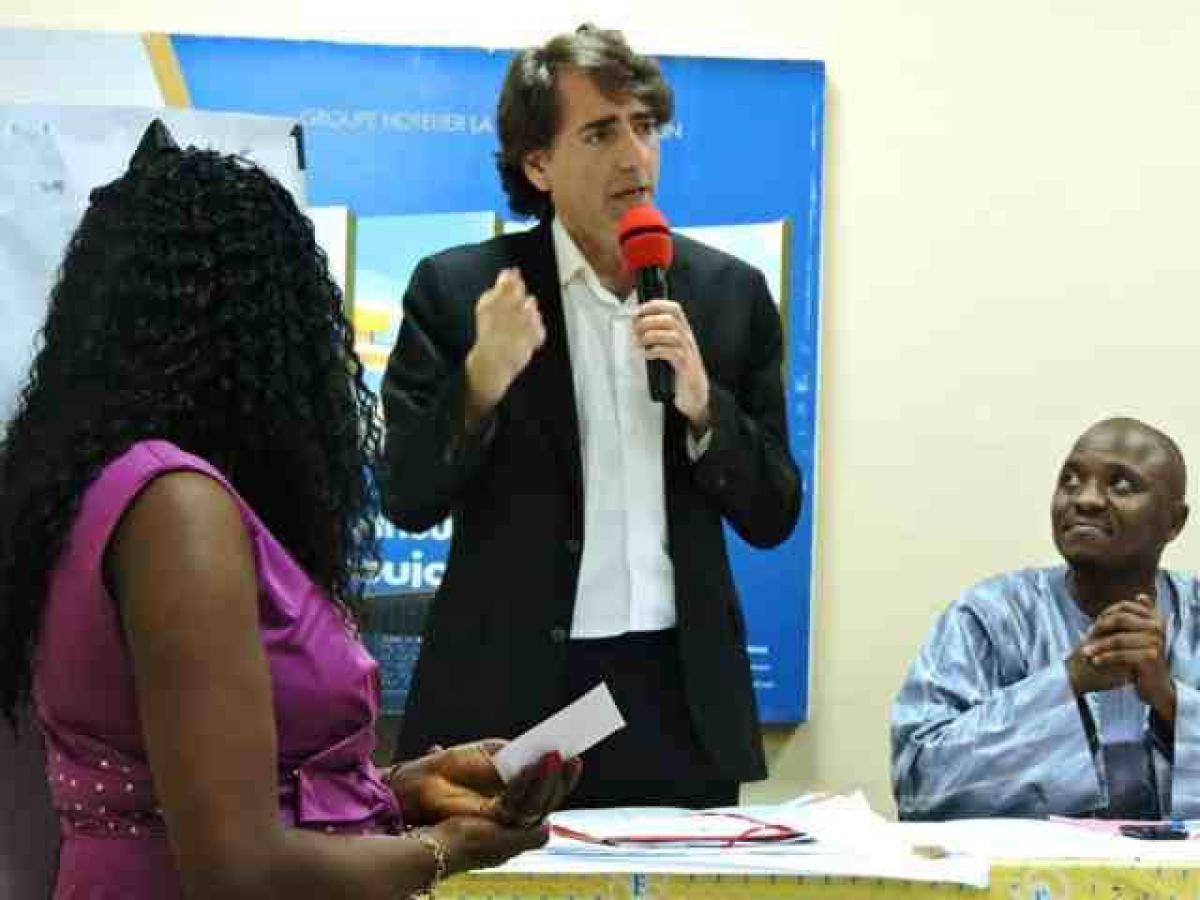Live
- Former Bhimavaram MLA Grandhi Srinivas Resigns from YSRCP
- Nagaur MP raises questions on intelligence failure after Raj CM's convoy hit by car
- Bengal: Senior resident doctor accused of rape, attempt to murder absconding
- Prateeksha Srivastava says she seldom meets fellow music composers Rusha, Blizza, in person
- KTR Accuses Government of Brutality Against Farmers, Calls for Immediate Action
- Manchu Manoj Attends Shooting Amid Family Controversy
- BWF World Tour Finals: Treesa-Gayatri defeat Malaysian pair to keep semis hopes alive
- MUDA case: Complainant Krishna asks Lokayukta to file new plaint on CM Siddaramaiah on ED’s report
- Airport capex in India to cross Rs 60,000 cr in fiscals 2025-2027 to handle growing traffic: Crisil
- Five-Year-Old Boy Dies After 55-Hour Rescue from Borewell in Rajasthan's Dausa
Just In
Eco- and Community-Friendly Development in Cameroon: the High Atlas Foundation trains government and civil sector employees in participatory development

9 Dec 2015 4:11 PM IST

x
Highlights
The High Atlas Foundation, in partnership with the Organization of Islamic Cooperation, Republic of Cameroon and United Nations Development Programme, trained Cameroonian government and civil sector employees in facilitating participatory community development in water management. The conference, held in Yaoundé November 24-25, aimed to train facilitators in participatory planning methods, allowing them to identify and implement water management systems and other sustainable projects with communities, as well as apply participatory approaches to water management and development in their professional lives.
 The High Atlas Foundation, in partnership with the Organization of Islamic Cooperation, Republic of Cameroon and United Nations Development Programme, trained Cameroonian government and civil sector employees in facilitating participatory community development in water management. The conference, held in Yaoundé November 24-25, aimed to train facilitators in participatory planning methods, allowing them to identify and implement water management systems and other sustainable projects with communities, as well as apply participatory approaches to water management and development in their professional lives.
The High Atlas Foundation, in partnership with the Organization of Islamic Cooperation, Republic of Cameroon and United Nations Development Programme, trained Cameroonian government and civil sector employees in facilitating participatory community development in water management. The conference, held in Yaoundé November 24-25, aimed to train facilitators in participatory planning methods, allowing them to identify and implement water management systems and other sustainable projects with communities, as well as apply participatory approaches to water management and development in their professional lives.
The conference was facilitated by Dr. Yossef Ben-Meir of the Moroccan-American NGO High Atlas Foundation, an organization focused on sustainable development through community-determined projects in agriculture, health and education.
With participants, Ben-Meir explored the concept of participatory development, a way of raising living standards by supporting the empowerment of local people in taking charge of their own community
development priorities and solutions. He emphasized that facilitators must allow community priorities to unfold, rather than shape conversations to their own conceptions.
“Is it participation if you decide what to talk about?” said Ben-Meir. “Don’t decide the project type. Don’t decide the project solution. Keep it up to the people.”
Ben-Meir then trained individuals as catalysts of change for struggling communities, stressing concepts of community meeting organization; conflict management; transparency; evaluation of projects in a way adapted to tradition and local capacities; and targeted involvement of often-marginalized groups, such as women and youth.
“If it’s not inclusive in the beginning, it’s hard to make it participatory later,” said Ben-Meir.
He emphasized that facilitation of community development can be difficult, but that facilitators have deep responsibilities to communities in which they work.
“It’s hard to go to the farthest, most remote places,” said Ben-Meir. “It’s hard to involve the landless and poor. If we want to be facilitators, we must commit our energy to projects and results. What happens if you don’t? The project stops. Then, (the community) won’t trust the next (development worker).”
Ben-Meir also encouraged participants to involve the Cameroonian government in community projects, referencing his foundation’s success in working toward Moroccan rural development with the Government of Morocco. He stressed that decentralization is key to strong community development, and that government policies should reflect and support the people’s will.
By creating community maps of development issue areas, participants identified problems in water management, such as the burden placed on women and girls to gather drinking water, which can take several hours each day; a lack of water infrastructure; flooding; and unequal drinking water access determined by geographic and socioeconomic factors. They also discussed problems with procuring materials from abroad and use of technology in locally adapted ways.
Participants then identified priority development areas in water sanitation and agricultural development, and discussed solutions.
Throughout the conference, Ben-Meir emphasized the power of Cameroonians to take charge of development in a participatory, democratic way.
Amadou Ballo, an architect from Garoua, expressed empowerment as a conference participant.
“We have seen something positive, and what we are capable of,” said Ballo. “Instead of being (treated in a condescending manner) as Africans, we know how to be prepared. We can access our own knowledge. No one will be lost in this system. No one.”
By Ida Sophie Winter

Next Story
More Stories
ADVERTISEMENT
© 2024 Hyderabad Media House Limited/The Hans India. All rights reserved. Powered by hocalwire.com






